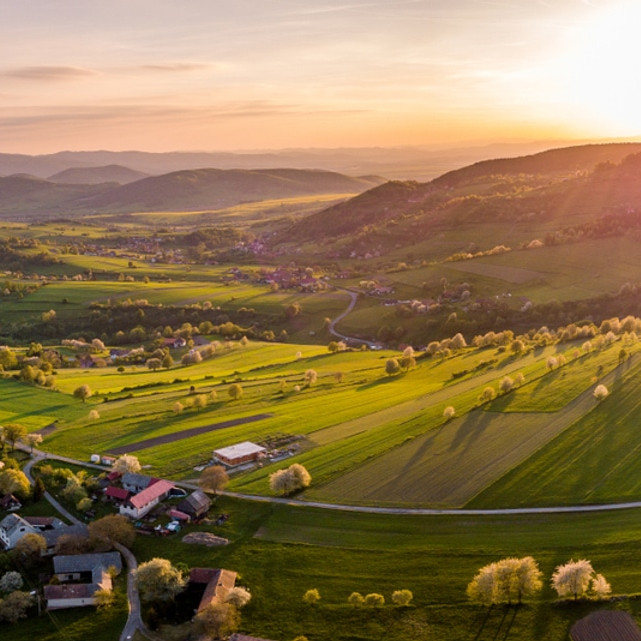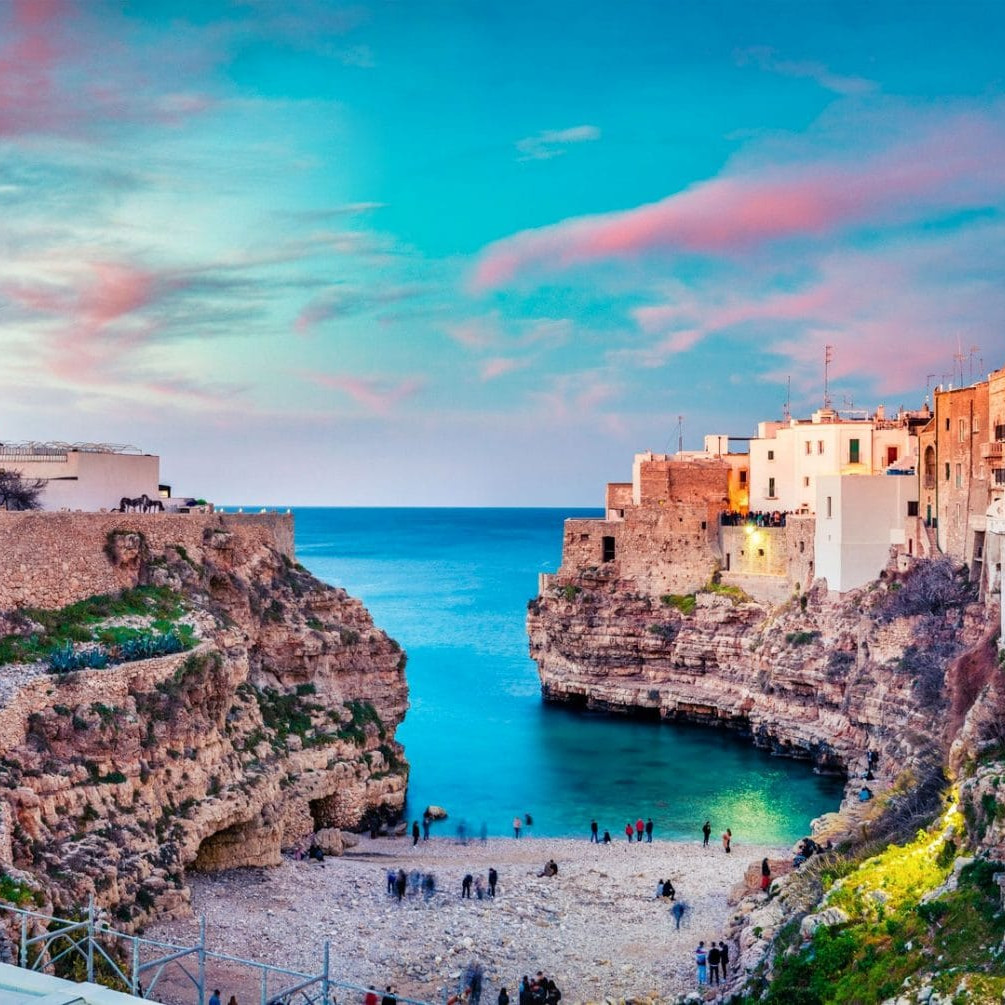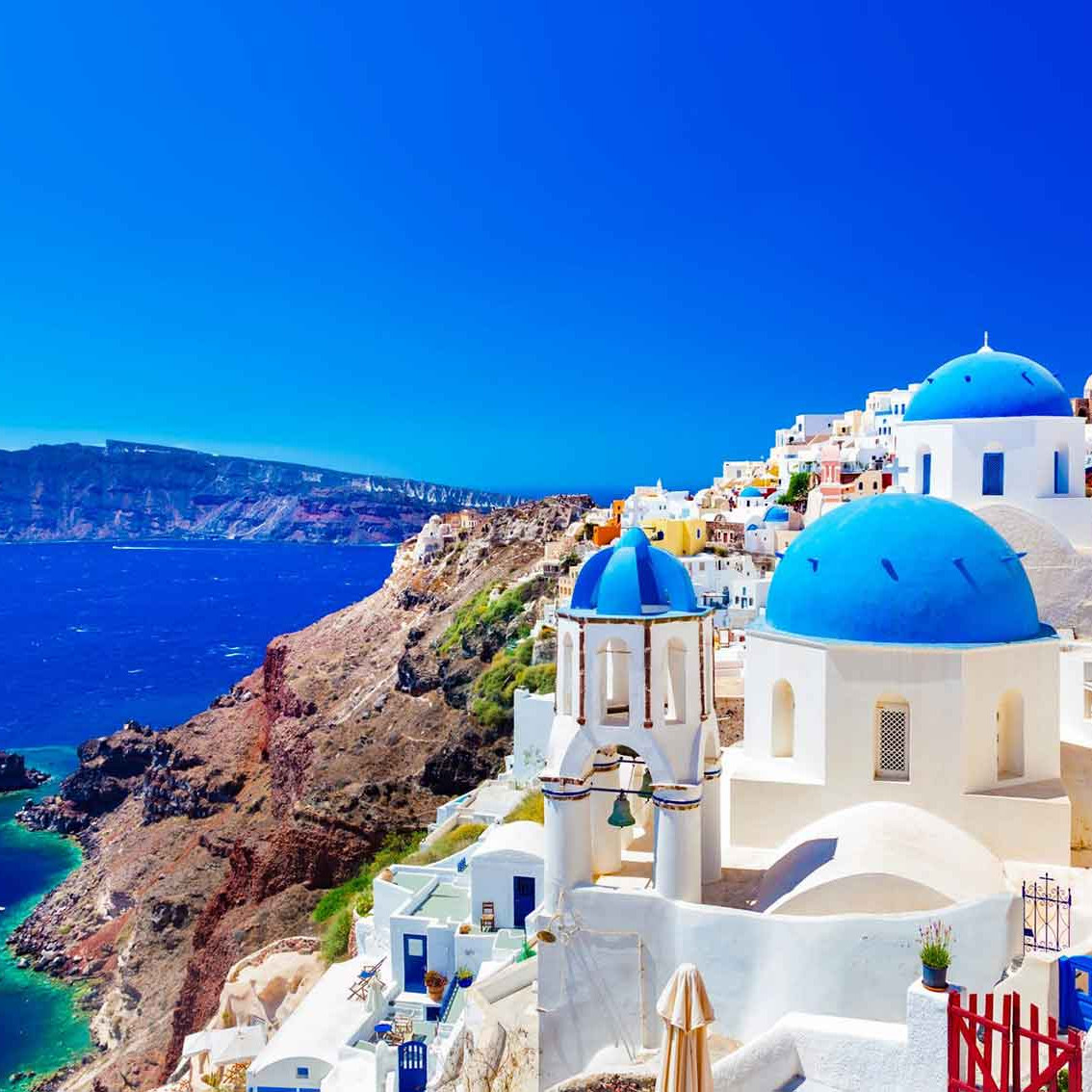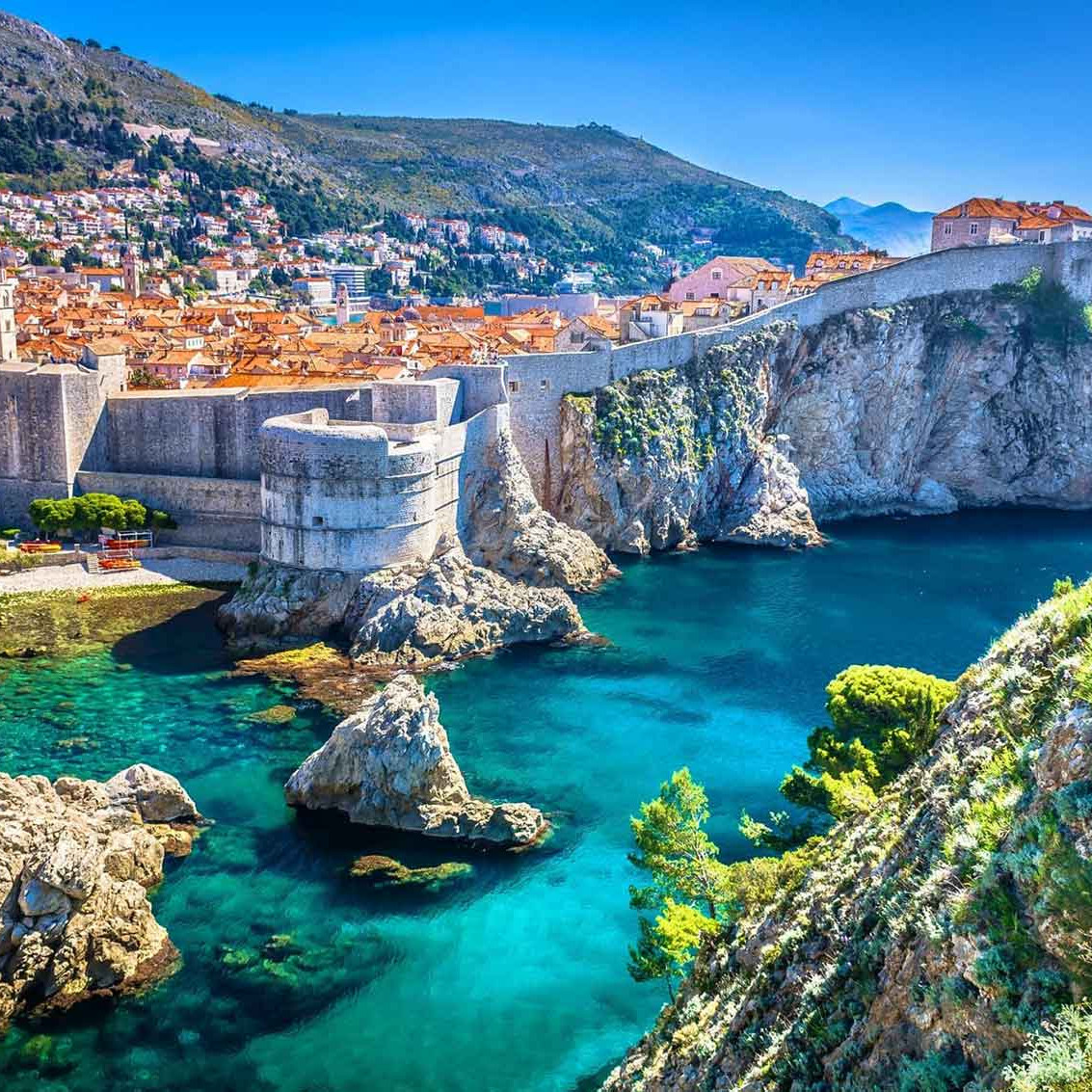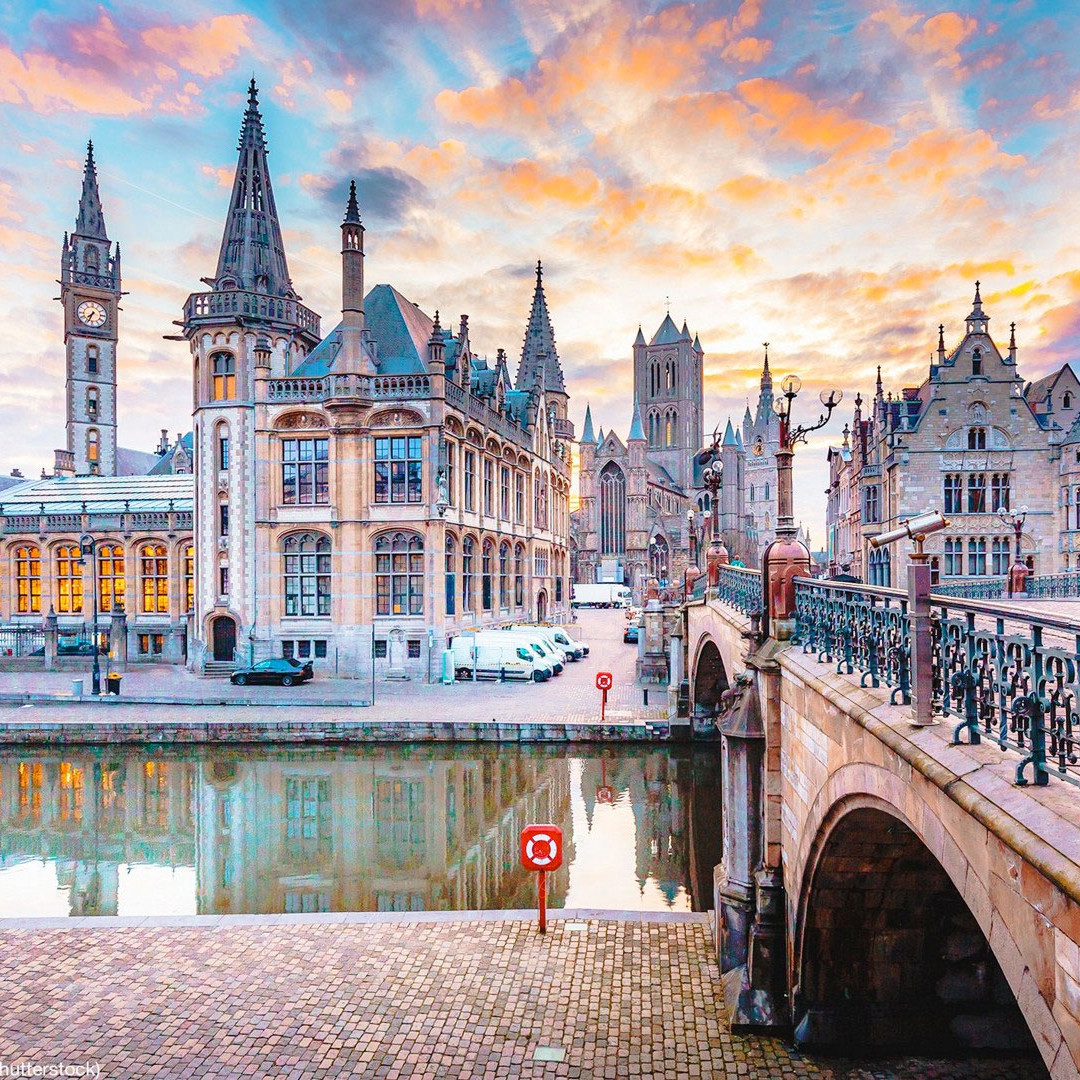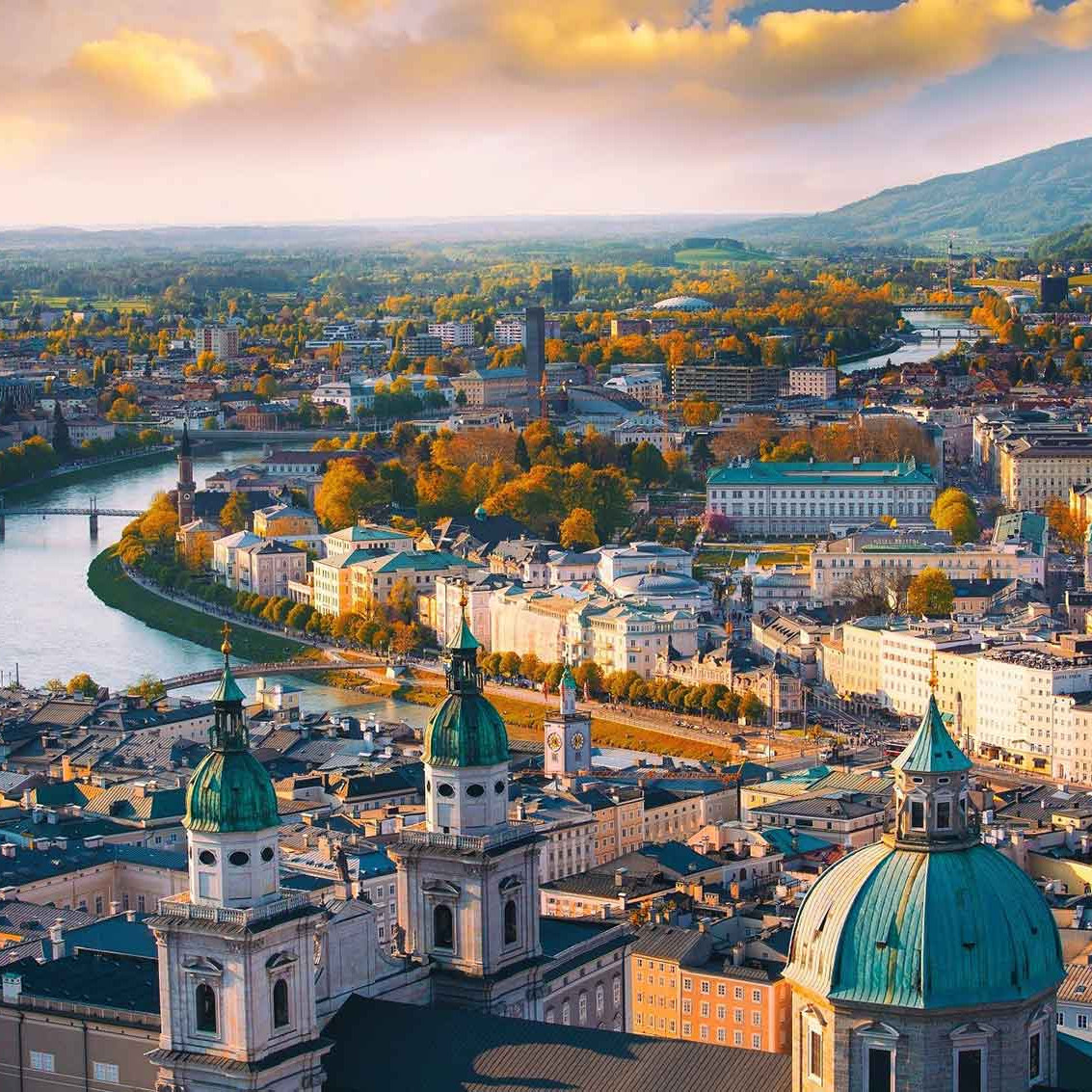Located in the Mediterranean Sea, Malta is a hidden gem. A three-island archipelago filled with a rich and fascinating history, landmarks and ruins, stunning landscapes and mouth watering cuisine, offering a unique and captivating experience for visitors.
Why Visit Malta
HISTORY
Malta’s history can be traced to the beginning of civilization. It has temples from the megalithic period and influence from Arabs, Normans, Aragoneses, Phoenicians, Carthaginians, and Romans. French and British also colonized the island. A cultural connection between Europe and Africa.
LANDSCAPES & BEACHES
Despite its small size, Malta offers a variety of breathtaking landscapes. Visitors can explore rugged cliffs, hidden coves, and crystal-clear waters. The islands are also known for its stunning sandy beaches, making it an ideal destination for relaxation and water activities.
GASTRONOMY
Maltese cuisine is a fusion of flavors influenced by its Mediterranean location and historical influences. From fresh seafood to traditional dishes like rabbit stew and pastizzi (flaky pastries filled with ricotta or mushy peas), Malta offers a delightful culinary experience.
AFFORDABILITY
Compared to other European destinations, Malta offers good value for money. Accommodation, dining, and attractions are often more affordable, making it an attractive option for travelers on a budget.
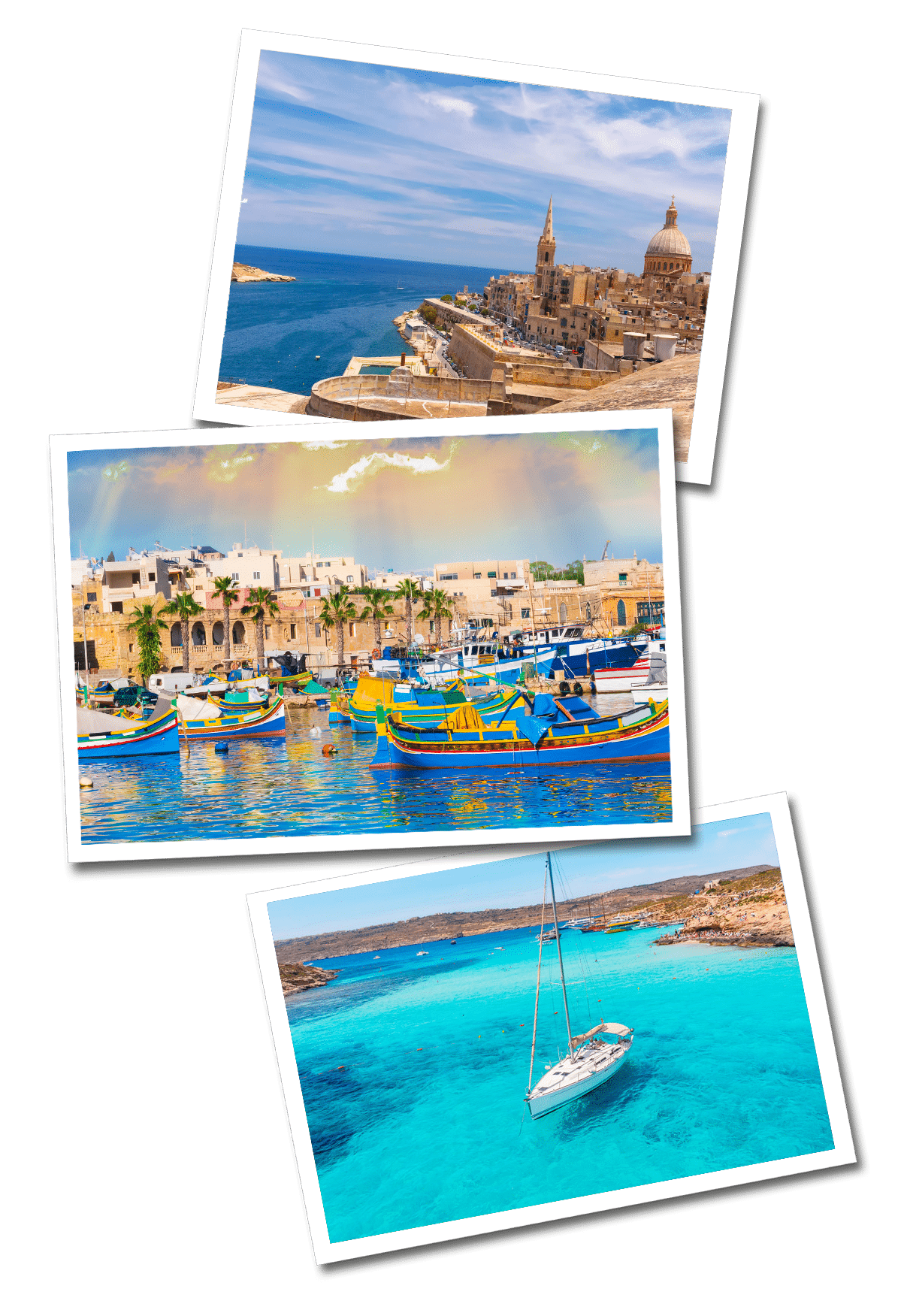
Located in the Mediterranean Sea, Malta is a hidden gem. A three-island archipelago filled with a rich and fascinating history, landmarks and ruins, stunning landscapes and mouth watering cuisine, offering a unique and captivating experience for visitors.
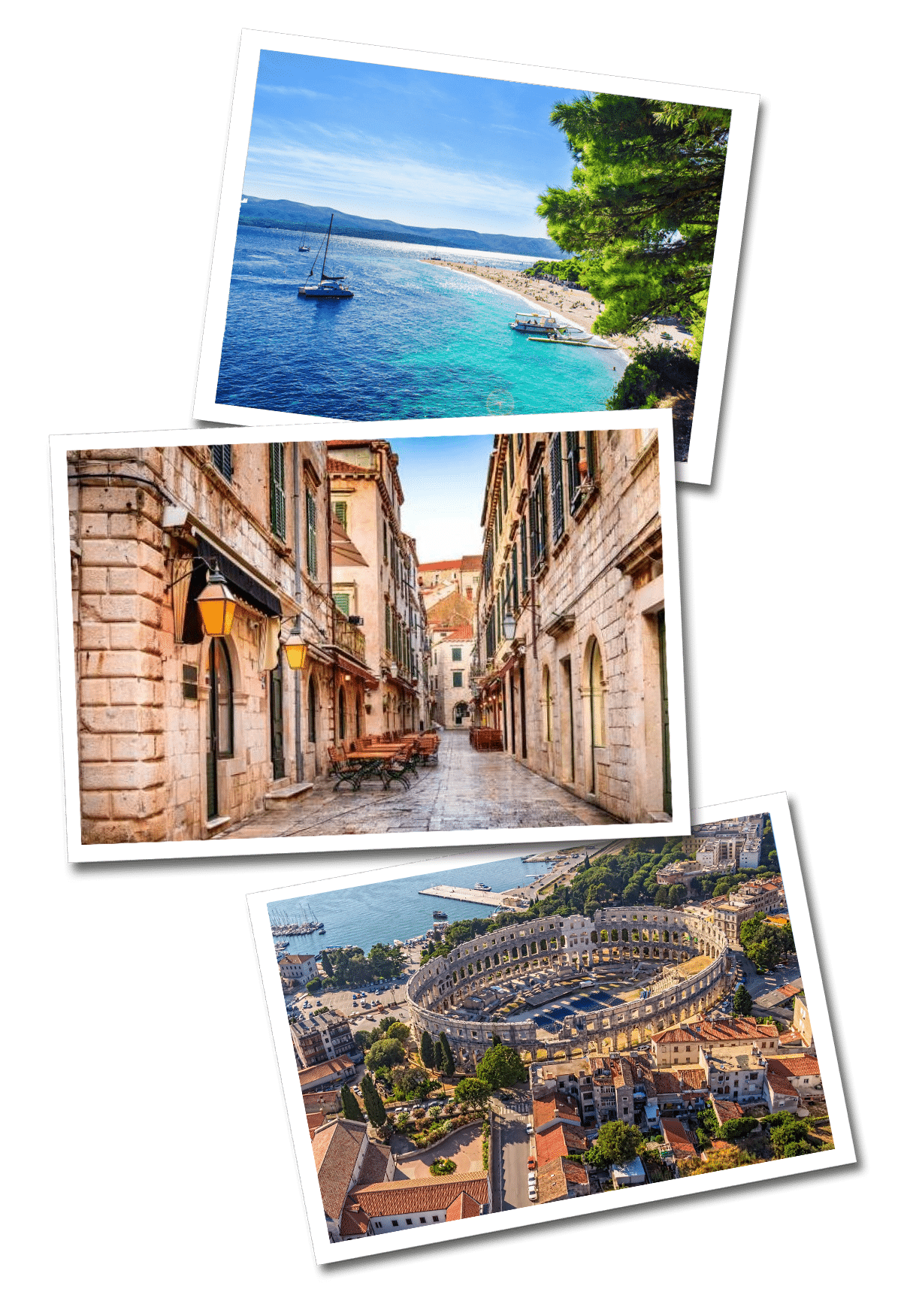
Why Visit Malta
HISTORY
Malta’s history can be traced to the beginning of civilization. It has temples from the megalithic period and influence from Arabs, Normans, Aragoneses, Phoenicians, Carthaginians, and Romans. French and British also colonized the island. A cultural connection between Europe and Africa.
LANDSCAPES & BEACHES
Despite its small size, Malta offers a variety of breathtaking landscapes. Visitors can explore rugged cliffs, hidden coves, and crystal-clear waters. The islands are also known for its stunning sandy beaches, making it an ideal destination for relaxation and water activities.
GASTRONOMY
Maltese cuisine is a fusion of flavors influenced by its Mediterranean location and historical influences. From fresh seafood to traditional dishes like rabbit stew and pastizzi (flaky pastries filled with ricotta or mushy peas), Malta offers a delightful culinary experience.
AFFORDABILITY
Compared to other European destinations, Malta offers good value for money. Accommodation, dining, and attractions are often more affordable, making it an attractive option for travelers on a budget.
Bucket List
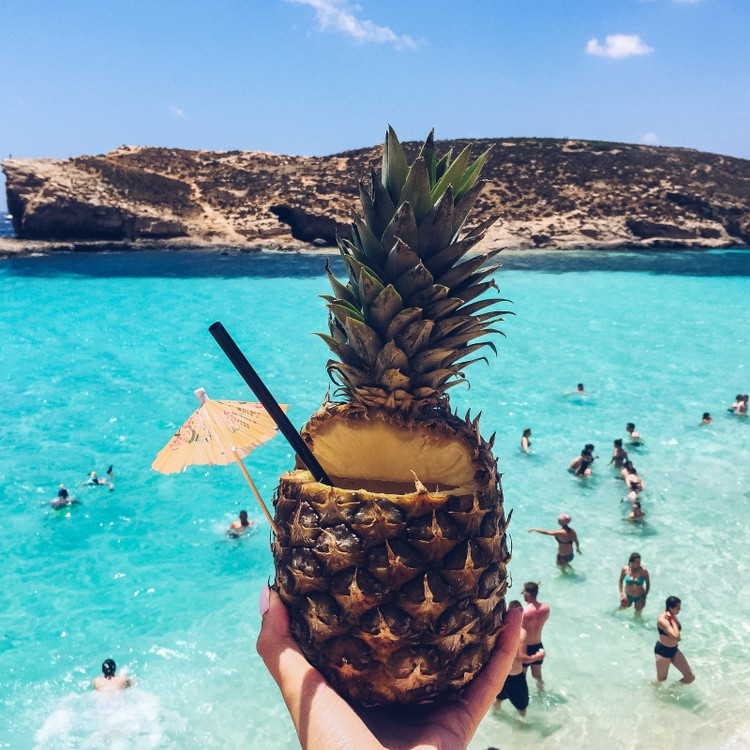
Swim in the Blue Lagoon
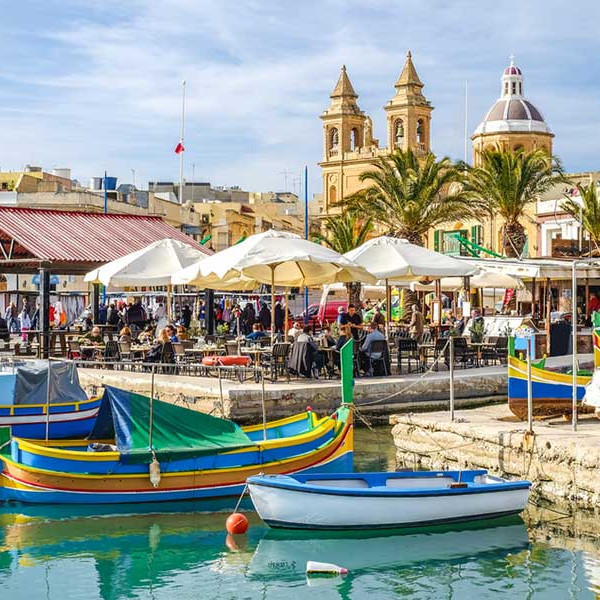
Try some fresh fish at the Marsaxlokk Sunday Market
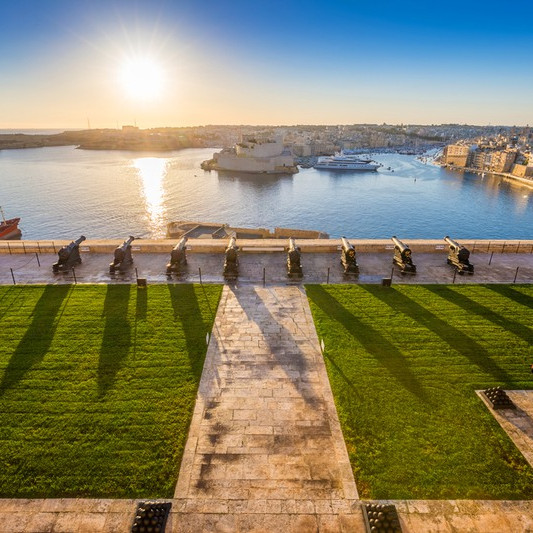
Enjoy the view from the top of the Barrakka Gardens
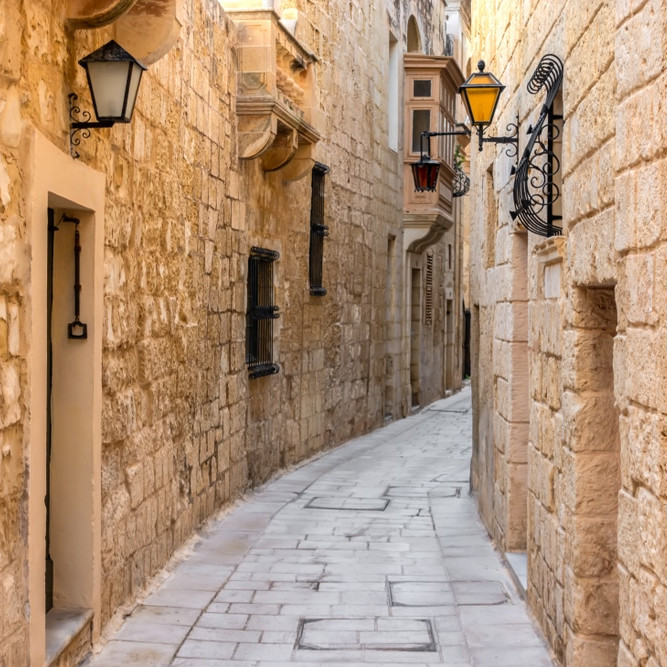
Explore the Silent City of Mdina
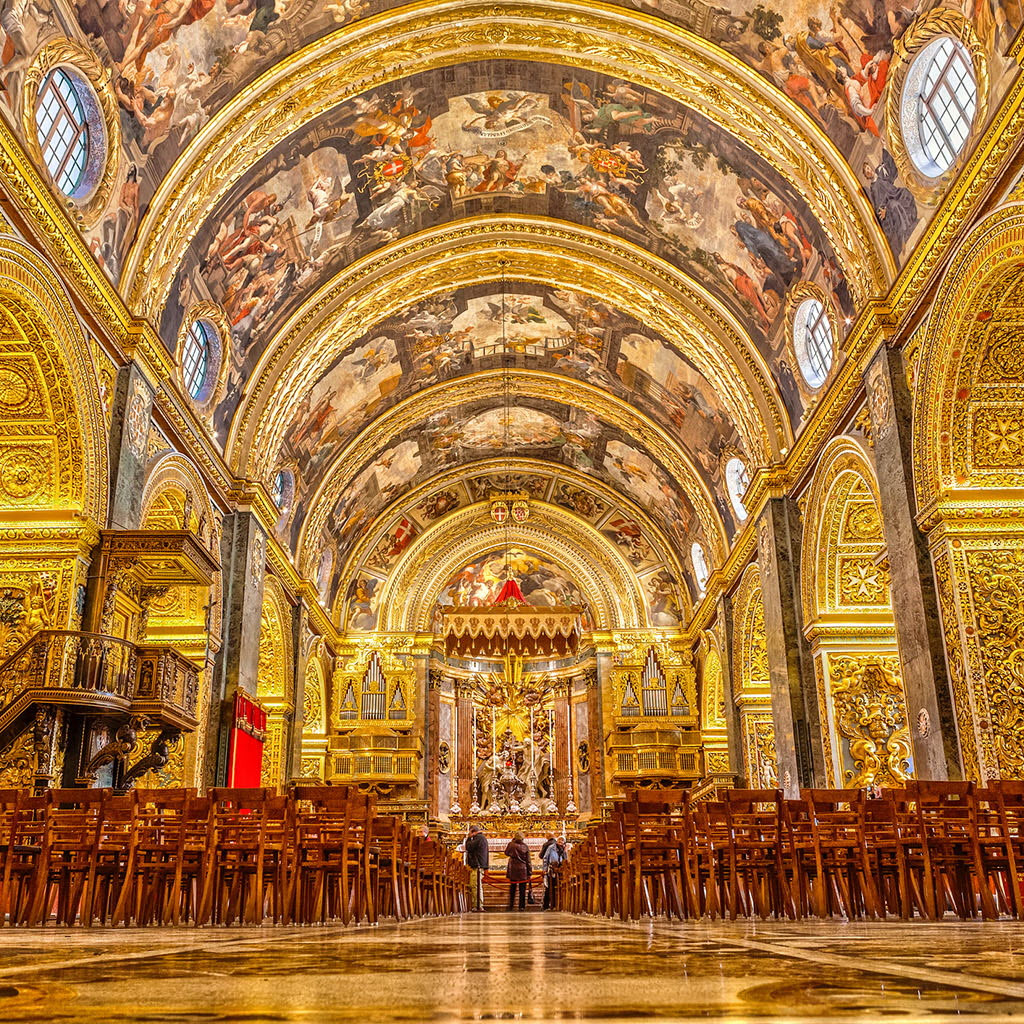
Visit St. John’s Co-Cathedral
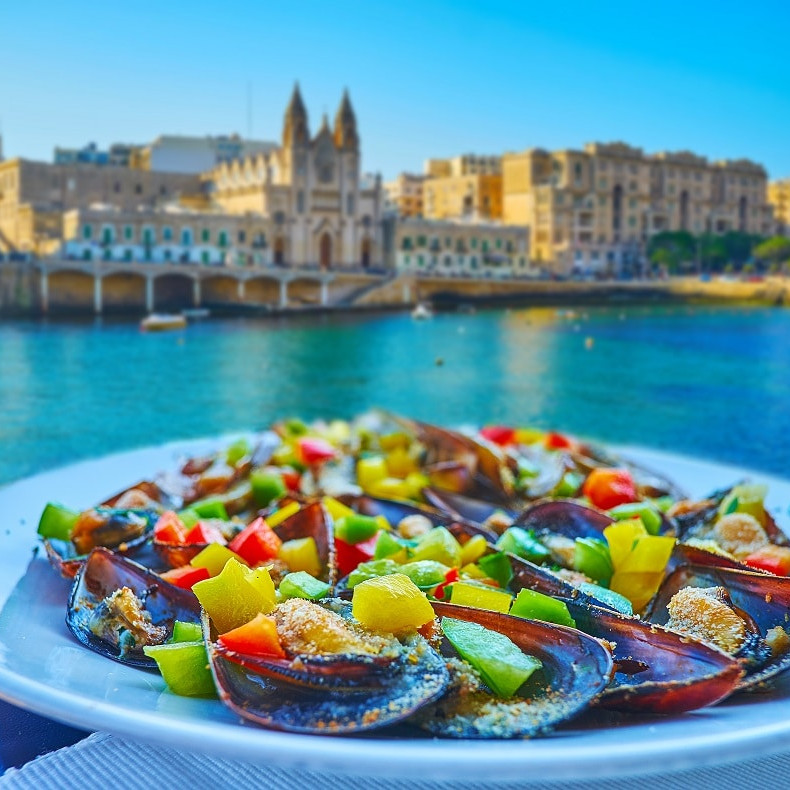
Try some Maltese gastronomy
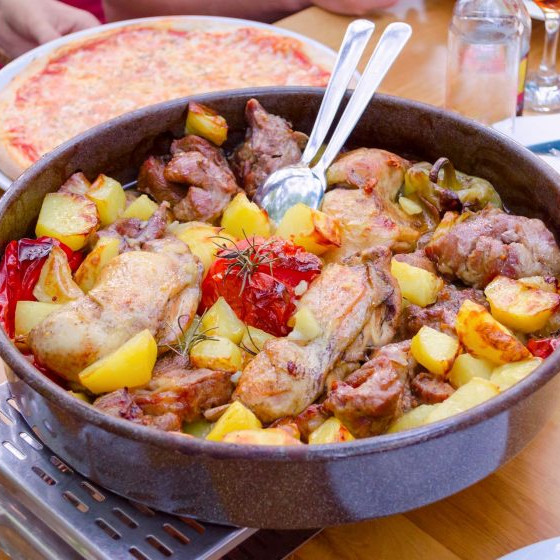
Swim in the waters of Dwejra Bay
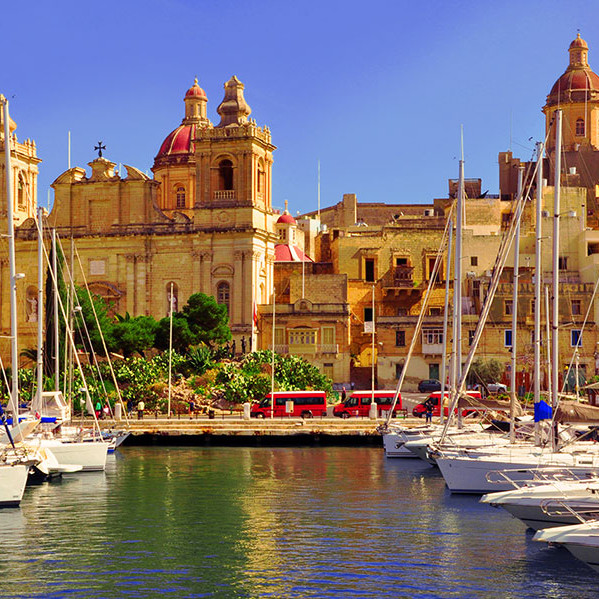
Wander around Valletta
What to expect in Malta
LANGUAGE
Malta’s official language is Maltese, a Semitic language with strong influences from Italian, Arabic, and English. The Maltese people also widely speak English, which is considered the second official language. This makes it easy for travelers to communicate and navigate their way around the island.
ELECTRICITY
In Malta the standard voltage is 230 V and the frequency is 50 Hz. That’s the standard voltage in the UK, Europe, Australia and most of Asia and Africa; If you are traveling from the US you will need an adaptor.
CURRENCY
The Euro is the official currency of Malta. 1 USD equals 0.92 euros (as of 2023). As Malta is becoming a popular tourist destination, foreign currencies are accepted in some restaurants and hotels, as well as credit cards. You can still exchange any other currency in any bank or withdraw the money directly from the ATM.
CLIMATE
Malta enjoys a Mediterranean climate with hot, dry summers and mild, wet winters. The summers (June to September) are generally hot and sunny, with temperatures averaging around 25-30°C (77-86°F). The winters (December to February) are mild, with temperatures ranging from 10-15°C (50-59°F). Spring and autumn offer pleasant weather, making them ideal times to visit when the temperatures are more moderate.
SAFETY
Malta is among the safest destinations in the EU. The crime rate is relatively low, and violent crime is rare. As in any other destination, you are encouraged to take security precautions to avoid any possible problems like scamming and pickpocketing.
How to get around
Getting around Malta is relatively easy, thanks to its compact size and efficient transportation system. Here are the different ways to explore the island:
- Public Buses: Malta has an extensive network of public buses that connect various towns, villages, and tourist attractions. The buses are affordable and operate regularly, making them a convenient option for getting around.
- Taxis: Taxis are readily available in Malta, and they can be hailed from taxi stands or booked in advance. It’s important to note that taxis operate on a metered fare system, and it’s advisable to confirm the price before starting the journey.
- Car Rental: Renting a car gives you the freedom to explore Malta at your own pace. There are several car rental agencies on the island, and driving is on the left-hand side. However, keep in mind that parking in popular tourist areas can be limited.
- Ferries: If you want to explore the neighboring islands of Gozo and Comino, ferries are the way to go. Regular ferry services operate between Malta and these islands, offering scenic journeys and the opportunity to discover more of the Maltese archipelago.
- Walking: Malta’s compact size makes it an excellent destination for walking. Many towns and cities have pedestrian-friendly areas, and walking allows you to soak in the charm of the narrow streets and historic sites.
- Bicycles: Cycling is a popular way to get around Malta, particularly in less congested areas. There are dedicated cycling paths and bike rental services available for those who prefer this eco-friendly mode of transportation.
It’s worth noting that Malta’s public transportation system is well-connected and cost-effective, making it a convenient option for most travelers. However, if you plan to explore remote areas or have specific mobility needs, renting a car may offer more flexibility.
Visa Policy
Citizens from the European Union (EU) and European Economic Area (EEA) countries, as well as Switzerland, do not need a visa to enter Malta.
Non-EU nationals from some countries, such as the United States, Canada, Australia, and New Zealand, can visit Malta for up to 90 days within a 180-day period without a visa.
However, visitors from some other countries, including China, Russia, and India, will need to apply for a Schengen visa before traveling to Malta. It is best to check with the Maltese embassy or consulate in your home country to confirm visa requirements and application procedures. Additionally, all visitors to Malta must have a valid passport or travel document, and it must be valid for at least three months beyond the intended stay in Malta.
SUBSCRIBE!
Are you a globetrotter? Join our platform and get exclusive travel tips, getaways and more!
Slovakia
Travel Slovakia, a magical budget destination for those who like cultural tourism and outdoor activities. The country boasts rich history..
Italy
Travel Italy, a country like no other. The country boots an incredible history and culture, with landmarks on every corner, incredible..
Greece
Travel to Greece, the birthplace of democracy. The country has an unique and extensive history, that has shaped the world. With crystal..
Croatia
Croatia is a small & impressive country that has just recently become a popular mediterranean destination, featuring turquoise waters and..
Belgium
Travel Belgium, is a small country known as the world capital of the beer and the chocolate. The is also home to amazing architecure and..
Austria
Travel Austria and explore its mountainous landscapes, picturesque villages, incredible castles and architecture and rich musical heritage.
Italy
Travel Italy, a country like no other. The country boots an incredible history and culture, with…
Greece
Travel to Greece, the birthplace of democracy. The country has an unique and extensive history,…
Croatia
Croatia is a small & impressive country that has just recently become a popular mediterranean…


